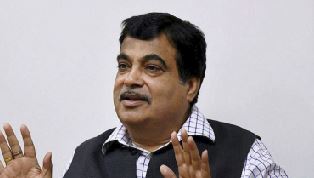
Gadkari Haul up the Bureaucracy
- नवम्बर 30, 2020
- 0
Road and transport minister Nitin Gadkari’s stinging rebuke of officials of the National Highways Authority of India (NHAI) for taking nine years to complete the construction of the NHAI headquarters—the tender for the Rs.250 crore project had been awarded in 2011—shines the spotlight on bureaucratic inefficiency in the country. The minister called NHAI officials ‘incompetent’, saying that they stalled the project with their indecision.
It is rare for the political executive to haul up the bureaucracy in the manner that Gadkari did, though the present dispensation at the Centre has moved far more decisively against bureaucratic corruption and inefficiency than its predecessors; indeed, between July 2014 and May 2019, the government forcibly retired more than 300 Group A and B officials for corruption and inefficiency. When it came back to power last year, it started with compulsory retirement of 27 IRS officers and followed this up with instructions to various departments to identify deadwood that the government needed to get rid of.
Indeed, bureaucratic lethargy/inaction has become canonical; multiple surveys of business leaders identify India’s inefficient, corrupt bureaucracy as a primary dampener of business confidence in the country.
Former NITI Aayog vice-chairman Arvind Panagariya claimed that the Indian bureaucracy has, on many occasions, thwarted the reform-oriented political executive; Panagariya pins this to a ‘socialist overhang’ that clouds the supply pipeline for the Indian bureaucracy.
But there is a flip side to this, and that is the bureaucracy is just as thwarted by the political executive. If a government is intent on carrying on with free/subsidised power for different cohorts within the electorate, what good does it do to have a ‘reformist’ or action-oriented bureaucrat in the power sector?
From subsidised grains to a ‘national carrier’ airline, from loan waivers to drug pricing, if the government is happy signalling an anti-reform stand, how does an efficient bureaucracy really help; apart from the fact that few bureaucrats would want to stick their necks out?
Similarly, it doesn’t matter how often the bureaucracy tinkers with the Prevention of Corruption Act, the pace of decision-making will not change till the political executive takes some bold decisions and amends the law drastically; so, for instance, the Constitution needs to be amended to say PSUs are not an arm of the state and equally strong changes will need to be made to fix legalities that prevents decision-making for fear of a AG/CBI/PCA sword hanging over your head. As former coal secretary HC Gupta’s example shows, sometimes, it is for the best not to act rather than implement the verbal decisions of the minister one reports to.
So, even as Gadkari scolds NHAI officials, and the Centre announces a Mission Karmayogi to reskill bureaucrats and weeds out inefficient ones, it must be kept in mind that what is really holding India back is the lack of political will and imagination; after all, when the government finally decided to move on farm and labour laws, the bureaucracy was no hindrance.
नौकरशाही की अक्षमता पर नितिन गडकरी का प्रहार
सड़क और परिवहन मंत्री निनि गडकरी ने भारतीय राष्ट्रीय राजमार्ग प्राधिकरण (एनएचएआई) के अधिकारियों को एनएचएआई मुख्यालय के निर्माण को पूरा करने में नौ साल का समय लेने के लिए फटकार लगाई। देश में नौकरशाही की अक्षमता पर प्रश्न चिह्न लगाया और कहा कि उन्होंने अपने अनिर्णय के कारण इस परियोजना को निलंबित किया जिसे 2011 में 250 करोड़ की लागत से शुरू किया गया था।
गडकरी ने जिस तरह से नौकरशाही को धोया राजनीतिक कार्यपालिका के लिए यह दुर्लभ है, हालांकि मौजुदा केंद्र सरकार नौकरशाही की भ्रष्टाचार और अक्षमता को साधने में कहीं अधिक निर्णायक रूप से अपने पूर्ववर्तियों की तुलना में काम कर रहे हैं, वास्तव में, 2014 और 2019 के बीच, सरकार ने भ्रष्टाचार और अक्षमता के लिए ग्रुप ए और बी के 300 से अधिक अधिकारियों को जबरन सेवानिवृत्त कर दिया था।
जब यह पिछले साल वापस सत्ता में आयी, तो इसने 27 आईआरएस अधिकारियों की अनिवार्य सेवानिवृत्ति के साथ शुरूआत की और इसके बाद विभिन्न विभागों में अक्षम अधिकारियों की पहचान करने के निर्देश दिए, जिससे सरकार को छुटकारा पाने की जरूरत थी।
वास्तव में, नौकरशाही सुस्ती/निष्क्रियता विहित हो गई हैः उद्योगपतियों के कई सर्वेक्षण भारत के अक्षम, भ्रष्ट नौकरशाही को देश में व्यापारिक विश्वास के लिए नासुर समझते हैं।
नीति के पूर्व उपाध्यक्ष अरविंद पनागरिया ने दावा किया कि भारतीय नौकरशाही ने कई मौकों पर सुधार-उन्मुख राजनीतिक कार्यकारिणी को विफल किया है। पनांगरिया ने इसे सोशलिस्ट ओवरहांग के लिए नामित किया है, जो भारतीय नौकरशाही की आपूति पाइपलाइन को बादलों में छुपा देती है।
लेकिन इसका एक दूसरा पक्ष भी है और वह यह है कि नौकरशाही राजनीतिक कार्यपालिका द्वारा ही विफल है। अगर कोई सरकार मतदाताओं के लिए मुफ्त रियायती बिजली दिये जाने पर आमादा है, तो बिजली क्षेत्र में सुधारवादी या कार्रवाई उन्मुख नौकरशाह क्या कर पा सकते हैं?
सब्सिडी वाले अनाज से लेकर राष्ट्रीय वाहक एयरलाइन तक और कर्जमाफी से लेकर दवा मूल्य निर्धारण तक अगर सरकार सुधार विरोधी रूख से खुश है तो एक कुशल नौकरशाही वास्तव में कैसे मदद कर सकती हैः इस तथ्य के अलावा कि कुछ नौकरशाह अपवादस्वरूप अपनी गर्दन बाहर कर लेते हैं?
इसी तरह, यह मायने नहीं रखता है कि नौकरशाही भ्रष्टाचार निरोधक अधिनियम के साथ कितनी बार टकराती है, निर्णय लेने की गति तब तक नहीं बदलेगी जब तक कि राजनीतिक कार्यपालिका कुछ साहसिक निर्णय नहीं लेती है और कानून में भारी संशोधन नहीं करती है।
उदाहरण के लिए, संविधान में यह कहने की आवश्यकता है कि सार्वजनिक उपक्रम राज्य का हिस्सा नहीं है और कानून को ठीक करने के लिए समान रूप से मजबूत बदलाव की आवश्यकता है जो उस डर से निर्णय लेने से रोकता है। जिसमें CAG/CBI/PCA की तलवार आपके सिर पर लटकी हुई हो।
जैसे कि पूर्व के कई उदाहरण से पता चलता है, कभी-कभी मंत्रियों के मौखिक आदेशों को लागू करने के बजाय कार्य नहीं करना अधिक सही माना जाता है।
इसलिए, भले ही गडकरी एनएचएआई अधिकारियों को डांटे और केंद्र नौकरशाहों को प्रशिक्षित करने के लिए मिशन कर्मयोगी की घोषणा करें और अयोग्य लोगों को हटाने की कोशिश करें, यह ध्यान में रखा जाना चाहिए कि जो वास्तव में भारत को पीछे धकेल रहा है वह है राजनीतिक इच्छाशक्ति और कल्पना की कमी। आखिरकार, जब सरकारने खेत और श्रम कानूनों को आगे बढ़ाने का फैसला किया, तो नौकरशाही तो कोई बाधा नहीं थी।































































